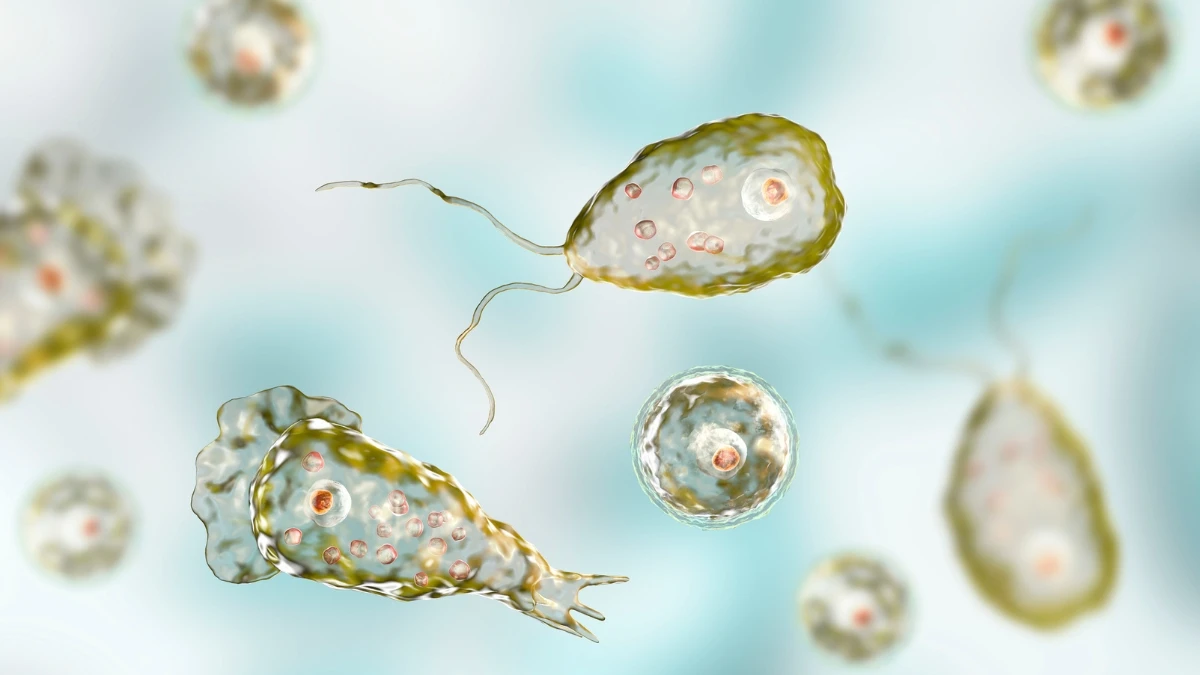Thiruvananthapuram, Sep 18 (PTI) The mother of a nine-year-old girl who died after contracting the so-called "brain-eating amoeba" says she is still struggling to comprehend the loss.
"I cannot believe my daughter is gone," a sobbing mother said, adding that there was no clear information from health authorities on how the child became infected.
The girl, hailing from Kozhikode, is among those who have succumbed in recent months to Primary Amoebic Meningoencephalitis, a rare but almost always fatal brain infection caused by Naegleria fowleri.
Kerala has been grappling with a rare but deadly disease that has claimed the lives of 19 people in recent months.
The culprit is a microscopic parasite known as Naegleria fowleri, more commonly called the "brain-eating amoeba", which causes a condition known as Primary Amoebic Meningoencephalitis, or PAM.
The infection is almost always fatal, killing more than 98 per cent of those who contract it. Over 70 cases have been reported in the state this year.
The amoeba is found in warm freshwater such as ponds, lakes, rivers and poorly maintained swimming pools.
According to health officials, it does not cause illness when swallowed, but when water enters the nose the parasite can migrate through the nasal passages into the brain, where it causes devastating inflammation and destruction of tissue.
The disease progresses very quickly.
"What starts as a fever, headache, nausea and stiff neck soon leads to confusion, seizures and coma. Death usually occurs within one to two weeks," according to a health official.
Doctors say it is often mistaken for bacterial meningitis, and by the time the real cause is recognised it is too late to save the patient.
Kerala Health Minister Veena George told the State Assembly on Wednesday that amoebae exist in most water sources, though only some types are dangerous.
She pointed out that the first case of PAM in the state was reported in 2016, and since then the government has been working on guidelines to help doctors respond more quickly.
Until recently, the tests needed to confirm the disease were only available at laboratories in Chandigarh and Puducherry, but now Kerala has established its own diagnostic facilities.
Health authorities have directed hospitals to suspect PAM in any patient with sudden meningitis-like symptoms and a recent history of contact with freshwater.
Microbiologists are to be alerted immediately so that cerebrospinal fluid samples can be checked under the microscope or confirmed by PCR testing.
Health officials said that the treatment remains extremely difficult.
There is no single drug that can cure PAM, and survivors worldwide are very few.
Patients who have made it through were treated with a combination of powerful medicines such as amphotericin B, miltefosine and rifampicin, together with therapies to reduce the dangerous brain swelling that accompanies the disease.
In Kerala, doctors now form multi-disciplinary teams to handle confirmed cases, involving neurologists, paediatricians, infectious disease specialists and critical care experts.
Though extremely rare, the disease has sparked anxiety because of its high death rate.
Experts stress that prevention is the best defence.
People are advised not to swim or dive in stagnant or poorly maintained freshwater bodies during the hot season. If swimming is unavoidable, nose clips can reduce the risk of water entering the nostrils.
Children should not play with hoses or sprinklers in a way that forces water up the nose, and garden hoses should be flushed before use.
Daily cleaning of paddling pools, proper chlorination of swimming pools and using only boiled or filtered water for nasal rinsing are also recommended.
Scientists warn that climate change may increase the risk of PAM.
The amoeba thrives in warm water and feeds on bacteria that flourish at higher temperatures. Hotter summers may both expand the parasite's range and drive more people to seek relief in lakes and rivers, raising the chances of exposure.
After the Nipah outbreak in Kozhikode in 2023, Kerala made it a policy to report and investigate every instance of brain fever, including rare infections like those caused by amoeba.
This report includes content sourced from Press Trust of India (PTI), edited for clarity and context.






